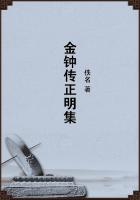The increasing division of labour forms, as we have seen, the chief cause of increase in its productive powers; each makes better what he is constantly engaged in ******, and when, at length, his whole labour is reduced to the ******st operation, he comes to perform it with such ease and rapidity, that the eye cannot make us comprehend how the address of man should arrive at such precision and promptitude. Often also this division leads to the discovery, that as the workman is now worth nothing more than a machine, a machine may in fact supply his place. Several important inventions in mechanics applied to the arts, have thus sprung from the division of labour; but, by the influence of this division, man has lost in intelligence all that he has gained in the power of producing wealth.
It is by the variety of its operations that our soul is unfolded; it is to procure citizens that a nation wishes to have men, not to procure machines At for operations a little more complicated than those performed by fire or water. The division of labour has conferred a value on operations so ******, that children, from the tenderest age, are capable of executing them; and children, before having developed any of their faculties, before having experienced any enjoyment of life, are accordingly condemned to put a wheel in motion, to turn a spindle, to empty a bobbin. More lace, more pins, more threads, and cloth of cotton or silk, are the fruit of this great division of labour; but how dearly have we purchased them, if it is by this moral sacrifice of so many millions of human beings!
The employment of machinery in place of men, has contributed generally to lessen the price of production. At the renovation of arts and civilization, there was so much work to be done, and so few hands to do it; oppression had so far reduced the poor class; there remained so much uncultivated land in the country; so many ill-supplied trades in towns; and sovereigns required so many soldiers for war, that it seemed workmanship could never be economized enough, since an artisan, sent away from one trade, would always find ten others ready to receive him. Circumstances are not now the same; our labour is scarcely sufficient for the labourers. We shall endeavour, in another place, to explain the cause of this fact; in the mean time, surely none will maintain that it can be advantageous to substitute a machine for a man, if this man cannot find work elsewhere; or that it is not better to have the population composed of citizens than of steam-engines, even though the cotton cloth of the first should be a little dearer than that of the second.
The application of science to art is not limited to the invention of machinery; its result is the discovery of raw materials, dyeing ingredients, preservative methods more sure and economical. It has produced better work at a cheaper rate; it has protected the health of labourers, as well as their produce; and its effect in augmenting wealth has almost always been beneficial to humanity.
Finally, the different quarters of the globe possess advantages of climate, soil, exposure, which not only render the subsistence of man more easy or cheaper, but also place within his reach certain raw materials, which other nations cannot procure at the same price. Hence results in their favour a kind of monopoly, which they exercise over others, and of which it is rare that they do not take advantage. There is also, in some degree, a natural advantage in the superiority of the people itself, in certain climates; the bounty of nature seems to have reserved for those who inhabit them a superiority of industry, intelligence, strength of body, or constancy in labour, which do not even require to be developed by education.
But other qualities, other virtues, which appear to contribute more effectually still to the increase of riches, as well as to the happiness of society - the love of order, economy, sobriety, justice - are almost always the work of public institutions. Religion, education, government, and principles of honour, change the nature of men; and as they make good or bad citizens of them, they advance or retard their approach to the object proposed by political economy.
But governments have rarely been satisfied with such advantages as the trade of their states might owe to nature, or to the progress of society. They have attempted to favour the increase of commercial wealth; and their different expedients have most frequently tended to assist the merchant in selling dear, rather than producing cheap. With the latter object, however, we have seen the exportation of raw materials prohibited, the rate of interest fixed, and laws enacted to lower the wages of labour.















